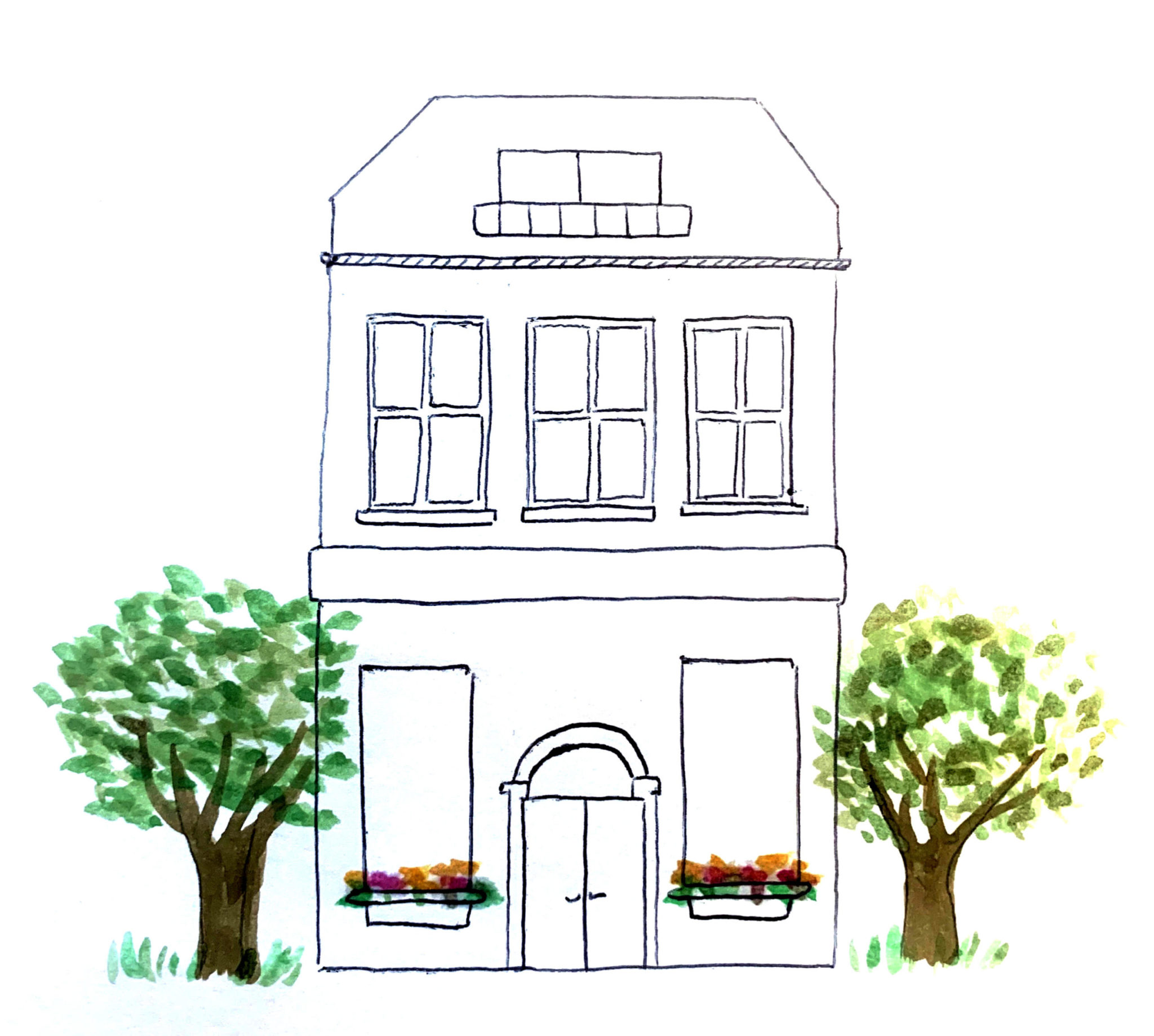
Marlena Raines
I’m out of breath as I stomp my feet on dirt and gravel, beside small colored houses and parked tractors on empty fields. It’s been a full day indoors, rotating from my bed to the kitchen, and then the couch, but now I run, watching sunlight pour out from a cluster of clouds on three freshly rained-on green hills ahead of me – an almost too-picturesque landscape. If you had asked me two weeks ago whether I envisioned spending my first-year spring in rural Upstate New York, I couldn’t have imagined it. Yet here I am with my parents and sister, escaping the confines of quarantining in a New York City apartment and the anxieties of touching elevator buttons and supermarket surfaces, panting as I move on empty roads surrounded by uneven grass and piles of hay.
To be honest, I’m not really running; it’s more of a “walk-jog,” an attempt to stretch out my cramped legs after keeping them in the same position throughout consecutive Zoom classes and Tik Tok scroll sessions. I stand straighter, trying to alleviate the small but nagging sharp pain in my lower back from sitting so much. Unlike my parents, who are now far ahead of me on the road, I’ve never been a big fan of running, but now I rely on this daily dose of fresh air to get my blood flowing and push me to get my work done in the evening.
All of a sudden, a new routine has consumed my everyday life: wake up, log into Canvas and Zoom, prepare intricate meals for myself between classes, log back into Zoom. This stops at around 5:00 p.m., when everyone in my family realizes they’ve been seated in the same position the whole day and could use sunlight and movement. At this point, my parents declare that it’s time to go on a run. They take running seriously, tracking how fast and how far they’re going. For me, “going on a run” is more figurative. I shift between speed walking, light running, and slow walking, using every moment to cleanse my eyes, glazed over by the constant computer and phone screen use. I’m no longer looking at my classmates’ faces through little, pixelated, stacked-up squares in virtual classrooms, but at real-life, three-dimensional trees and mountains. The transition when I first exit the house is strange – suddenly, there are pebbles and twigs on the ground that make a sound when they crunch under my feet, and what I picture in the distance is something I can approach simply by moving forward.
My running feels somewhat awkward, like I’m forcing a set of movements without knowing the purpose behind them. Are my daily runs just a way to maintain a basic level of physical health or will they amount to something? Will I learn about myself through this ritual? Should I be setting goals in this time away from social interaction, or should I just live with the intent of completing tasks according to each individual day? I inhale the fresh air, telling myself that maybe through this time in the country I’ll “find myself in nature” – whatever that means.
So far, I haven’t set any goals. Life has been stripped to its most basic elements in the past two weeks and I have become aware of small everyday details, like the gentle scrape of my knife when I spread avocado on a piece of toast for lunch. I wake up to the animated sound of my old high school biology teacher’s voice booming from my sister’s room. Four years after teaching me, she’s still telling her students about what she calls her “biology bible,” a thick index of all the information on each cell structure that she compiled in college. I walk downstairs and hear my mom shuffling in the kitchen, making herself a cup of coffee. The machine beeps and she grabs a carton of milk from the fridge, the door thudding when she closes it. I move slowly. At breakfast, I take the time to cut off each strawberry stem evenly before placing them in a bowl. The events of the day have been reduced to the pure motions that comprise them. Assignments that took me an hour to complete in Sterling now take several hours, and I’ve started baking every day to procrastinate my work into the late night, waking up groggy despite sleeping more than I ever did at school. Melting together, days are no longer distinct from each other, and I always have to think hard in order to remember what day it is. I notice time when I go outside. When we first arrived upstate, it was still winter and the streets and landscape were covered in snow. Now it’s April, and the days are getting longer and warmer, the mountains are green, and I stopped wearing a coat and a hat on runs.
I can’t tell whether I feel more connected to nature, or if I’m at the farthest point from it. I spend hours fully absorbed in my computer and phone screen, talking to friends I haven’t seen in a month, learning over Zoom, and completing school assignments. While I’m indoors, my whole life exists within the confines of a small metal box, but it all melts away when I step outside. As I start running up the hill, I realize how much I depend on the fresh air to revive me back to reality. Now I’m just a visitor in a town I barely know, just trying to appreciate the outdoors in early spring.
Julia Levi | julia.levi@yale.edu







